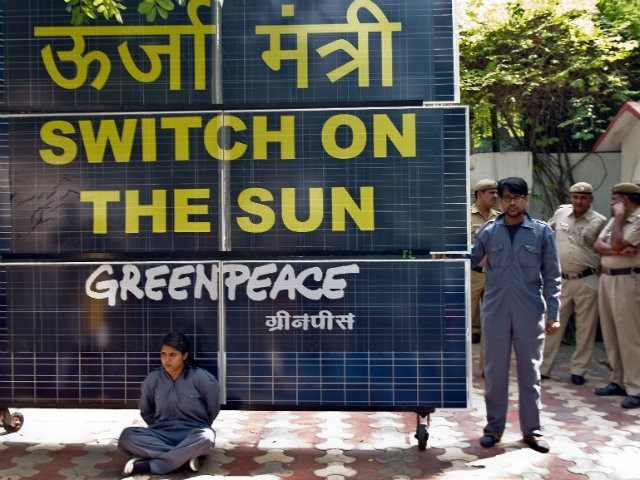Following President Trump’s decision to withdraw from the Paris Climate Accord, a number of other nations have quietly begun ignoring the Paris energy goals, according to a new report out of Canada.
According to Lawrence Solomon of Energy Probe, a Toronto-based environmental organization, Canadian Prime Minister Justin Trudeau is one of the only signers of the Paris agreement who is actually abiding by the exacting demands of the accord.
Meanwhile, Solomon notes in an essay in Friday’s Financial Post, “most signatories are ignoring, if not altogether abandoning Paris commitments, undoubtedly because voters in large part put no stock in scary global warming scenarios.”
“Trudeau now stands almost alone in sincere support of Paris,” Solomon writes. “The populist backlash — a revulsion at top-down governments laden with jet-setting politicians landing in posh places to preach restraint to the masses — has swept America with Trump’s election, Great Britain with Brexit, much of Europe, and Australia.”
“In the process, global warming enthusiasts are being swept out,” he writes.
Last week, Australia rejected its Clean Energy Target (CET), a lengthy proposal that would have forced electricity utilities to rely on renewables and other low-emission sources for a substantial percentage of their production. The measure had been put forward as a way of complying with requirements of the non-binding Paris agreement.
Earlier this month, the prominent Australian economist Judith Sloan wrote a scathing essay decrying renewable energy as the greatest “scam” being perpetrated against taxpayers and consumers, greater even than Ponzi, Madoff or Enron.
While sinking enormous financial resources into propping up renewable energy prospectors, national governments are providing no perceptible benefits to their citizens, Sloan wrote.
“With very few exceptions, governments all over the world have fallen into the trap of paying renewable energy scammers on the basis that it is necessary, at least politically, to be seen to be doing something about climate change,” Sloan writes, before providing readers with an avalanche of economic data to back up her assertion.
Apparently, Sloan’s arguments and those of like-minded analysts prevailed on policy makers, and the country rejected the CET with its taxpayer funded subsidizing of renewables.
A second blow to disciples of the Paris Climate Accord was last week’s Austrian election, Solomon argues, “which saw two conservative parties with no interest in climate change — it wasn’t even an election issue — come in first and second, making them likely to form a pro-carbon coalition government.”
Germany, too, which has been a staunch proponent of anti-climate change regulations, has fallen “hopelessly behind in meeting its carbon targets,” according to a leak. The current state of affairs has not only undermined Germany’s climate policy, but also jeopardizes “Germany’s international reputation as a climate leader,” Solomon asserts.
According to the analyst, popular opinion against German Chancellor Angela Merkel’s “Energiewende” (energy transition) policies, which had doubled electricity prices, played no small part in Merkel’s terrible showing in last month’s national elections. Costs of the ill-fated Energiewende now total some €650 billion, a bill that weighs heavily on the shoulders of German taxpayers.
Late last year, to their national embarrassment, the Germans had to be bailed out of a small energy crisis by Poland when the wind failed to blow for several days and a thick fog surrounded many parts of Germany, driving the output from renewables to just 4 percent of total demand. It was coal-fueled Poland that had to rescue Germany from its self-induced energy crisis.
“Merkel may now be unable to form a government without the support of the libertarian Free Democratic Party, which demands an end to renewables subsidies,” Solomon notes.
And so around the world—except in Trudeau’s Canada—nations are once again turning back to inexpensive coal rather than pouring more money into costly “renewables,” and coal plants are being built at five times the rate that old plants are being decommissioned.
This quiet revolution may simply be a welcome return to common sense and realism.
After all, once the photo ops are finished and the politically correct accords are duly signed amidst solemn brow furling, political leaders must get back to the business of meeting the real needs of their citizens—which all depend on the availability of affordable energy.
Follow Thomas D. Williams on Twitter Follow @tdwilliamsrome

COMMENTS
Please let us know if you're having issues with commenting.